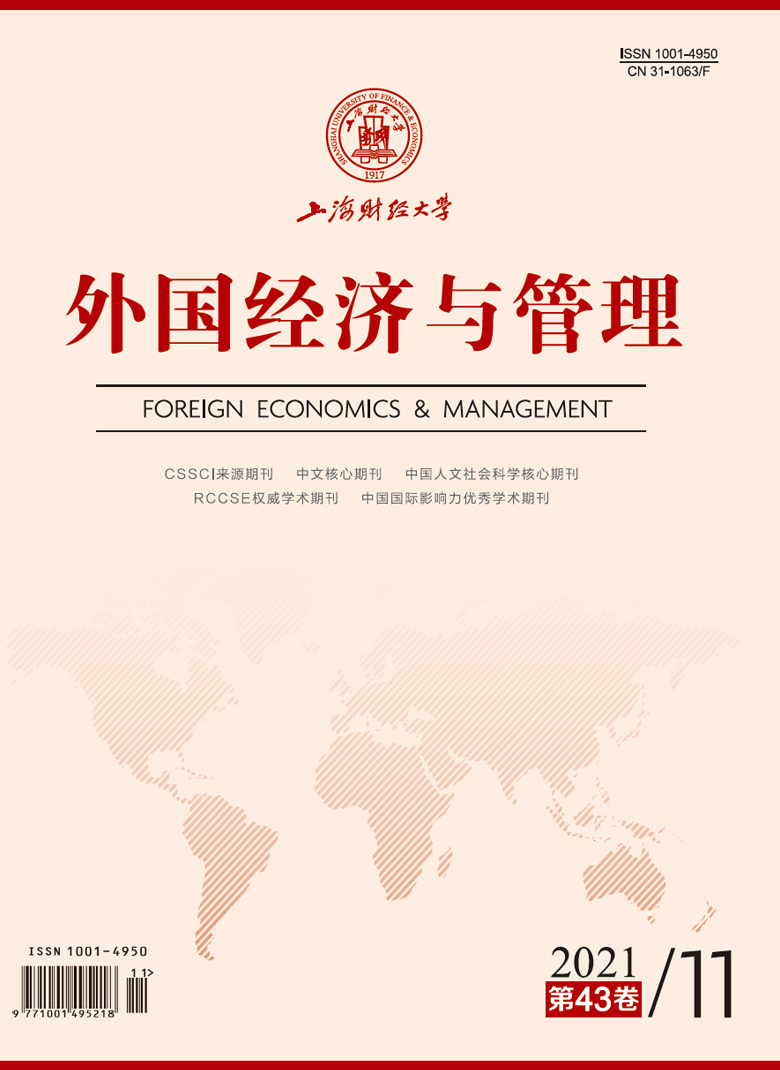人力资源决策程序的公平性始终是组织管理的一个关键问题。在数智化时代,越来越多的管理者期望引入人工智能算法优化决策环境并提高决策效率。但是,考虑到人力资源决策的直接对象是员工,他们如何感受、认知和评价人工智能算法决策程序公平性的问题十分重要。本文基于信息透明度的视角,以程序公平理论为研究框架,探究了人力资源决策中不同决策主体(人工智能算法vs.上级主管)对员工程序公平感知的影响机理。两个情境实验结果如下:实验1发现,在组织人力资源决策情境下,与上级主管决策相比,员工认为人工智能算法决策的信息透明度更低,并由此对人工智能算法决策产生更低的程序公平感知;实验2发现,组织包容型氛围在人工智能算法决策对员工程序公平感知的主效应中起调节作用,即当员工感知到具有较低水平的包容型氛围时,人工智能算法决策对程序公平感知的影响更加明显。本研究识别出人工智能算法决策潜在的负面影响,对于辩证地认识组织决策中人工智能的应用具有理论意义和实践价值。
AI算法决策能提高员工的程序公平感知吗?
摘要
参考文献
2 徐鹏, 徐向艺. 人工智能时代企业管理变革的逻辑与分析框架[J]. 管理世界,2020, 36(1): 122-129. DOI:10.3969/j.issn.1002-5502.2020.01.012
3 Bal P M, de Lange A H, Ybema J F, et al. Age and trust as moderators in the relation between procedural justice and turnover: A large-scale longitudinal study[J]. Applied Psychology,2011, 60(1): 66-86. DOI:10.1111/j.1464-0597.2010.00427.x
4 Bernerth J B, Aguinis H. A critical review and best-practice recommendations for control variable usage[J]. Personnel Psychology,2016, 69(1): 229-283. DOI:10.1111/peps.12103
5 Burrell J. How the machine “thinks”: Understanding opacity in machine learning algorithms[J]. Big Data & Society,2016, 3(1): 1-12.
6 Colquitt J A, Scott B A, Rodell J B, et al. Justice at the millennium, a decade later: A meta-analytic test of social exchange and affect-based perspectives[J]. Journal of Applied Psychology,2013, 98(2): 199-236. DOI:10.1037/a0031757
7 Dietvorst B J, Simmons J P, Massey C. Algorithm aversion: People erroneously avoid algorithms after seeing them err[J]. Journal of Experimental Psychology:General,2015, 144(1): 114-126. DOI:10.1037/xge0000033
8 Duan Y Q, Edwards J S, Dwivedi Y K. Artificial intelligence for decision making in the era of Big Data – evolution, challenges and research agenda[J]. International Journal of Information Management,2019, 48: 63-71. DOI:10.1016/j.ijinfomgt.2019.01.021
9 Edwards J S, Duan Y, Robins P C. An analysis of expert systems for business decision making at different levels and in different roles[J]. European Journal of Information Systems,2000, 9(1): 36-46. DOI:10.1057/palgrave.ejis.3000344
10 Hollenbeck J R, Ilgen D R, LePine J A, et al. Extending the multilevel theory of team decision making: Effects of feedback and experience in hierarchical teams[J]. Academy of Management Journal,1998, 41(3): 269-282.
11 Kacmar K M, Witt L A, Zivnuska S, et al. The interactive effect of leader-member exchange and communication frequency on performance ratings[J]. Journal of Applied Psychology,2003, 88(4): 764-772. DOI:10.1037/0021-9010.88.4.764
12 Kim W C, Mauborgne R. Procedural justice, strategic decision making, and the knowledge economy[J]. Strategic Management Journal,1998, 19(4): 323-338. DOI:10.1002/(SICI)1097-0266(199804)19:4<323::AID-SMJ976>3.0.CO;2-F
13 Kuhn K M, Maleki A. Micro-entrepreneurs, dependent contractors, and instaserfs: Understanding online labor platform workforces[J]. Academy of Management Perspectives,2017, 31(3): 183-200. DOI:10.5465/amp.2015.0111
14 Lambrecht A, Tucker C. Algorithmic bias? An empirical study of apparent gender-based discrimination in the display of STEM career ads[J]. Management Science,2019, 65(7): 2966-2981. DOI:10.1287/mnsc.2018.3093
15 Lee M K. Understanding perception of algorithmic decisions: Fairness, trust, and emotion in response to algorithmic management[J]. Big Data & Society,2018, 5(1): 1-16.
16 Lee M K, Kusbit D, Metsky E, et al. Working with machines: The impact of algorithmic and data-driven management on human workers[A]. Proceedings of the 33rd annual ACM conference on human factors in computing systems[D]. Seoul, Republic of Korea: Association for Computing Machinery, 2015.
17 Leventhal G S. What should be done with equity theory?[A]. Gergen K J, Greenberg M S, Willis R H. Social exchange: Advances in theory and research[M]. Boston: Springer, 1980.
18 Li D Y, Du Y. Artificial intelligence with uncertainty[M]. Boca Raton: Chapman & Hall/CRC, 2007.
19 Liu Y Y, Eisingerich A B, Auh S, et al. Service firm performance transparency: How, when, and why does it pay off?[J]. Journal of Service Research,2015, 18(4): 451-467. DOI:10.1177/1094670515584331
20 Miller F A. Strategic culture change: The door to achieving high performance and inclusion[J]. Public Personnel Management,1998, 27(2): 151-160. DOI:10.1177/009102609802700203
21 Miron M, Tolan S, Gómez E, et al. Evaluating causes of algorithmic bias in juvenile criminal recidivism[J]. Artificial Intelligence and Law,2021, 29(2): 111-147. DOI:10.1007/s10506-020-09268-y
22 Newman D T, Fast N J, Harmon D J. When eliminating bias isn’t fair: Algorithmic reductionism and procedural justice in human resource decisions[J]. Organizational Behavior and Human Decision Processes,2020, 160: 149-167. DOI:10.1016/j.obhdp.2020.03.008
23 Nishii L H. The benefits of climate for inclusion for gender-diverse groups[J]. Academy of Management Journal,2013, 56(6): 1754-1774. DOI:10.5465/amj.2009.0823
24 Orlikowski W J, Scott S V. What happens when evaluation goes online? Exploring apparatuses of valuation in the travel sector[J]. Organization Science,2014, 25(3): 868-891. DOI:10.1287/orsc.2013.0877
25 Schildt H. Big data and organizational design—The brave new world of algorithmic management and computer augmented transparency[J]. Innovation-Organization & Management,2017, 19(1): 23-30.
26 Shore L M, Randel A E, Chung B G, et al. Inclusion and diversity in work groups: A review and model for future research[J]. Journal of Management,2011, 37(4): 1262-1289. DOI:10.1177/0149206310385943
27 Strohmeier S, Piazza F. Artificial intelligence techniques in human resource management—A conceptual exploration[A]. Kahraman C, Onar S Ç. Intelligent techniques in engineering management[M]. Cham: Springer, 2015.
28 Taylor M S, Tracy K B, Renard M K, et al. Due process in performance appraisal: A quasi-experiment in procedural justice[J]. Administrative Science Quarterly,1995, 40(3): 495-523. DOI:10.2307/2393795
29 Thau S, Bennett R J, Mitchell M S, et al. How management style moderates the relationship between abusive supervision and workplace deviance: An uncertainty management theory perspective[J]. Organizational Behavior and Human Decision Processes,2009, 108(1): 79-92. DOI:10.1016/j.obhdp.2008.06.003
引用本文
裴嘉良, 刘善仕, 钟楚燕, 等. AI算法决策能提高员工的程序公平感知吗?[J]. 外国经济与管理, 2021, 43(11): 41-55.
导出参考文献,格式为:
上一篇:信任文化影响供应商分布决策吗?





 7661
7661  11580
11580

